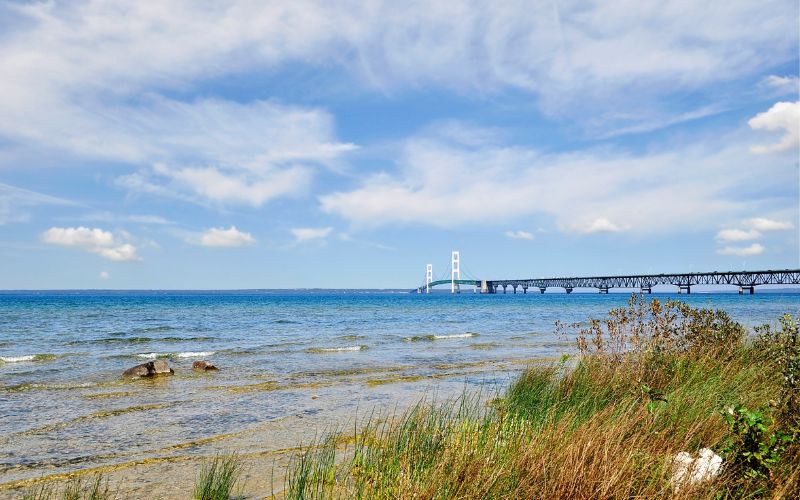
- Details
- By Native News Online Staff
Today, the Bay Mills Indian Community released a statement condemning a decision by the Michigan Public Service Commission (MPSC) approving a permit for the Canadian oil giant Enbridge to replace the disastrous Line 5 dual oil pipelines under the Great Lakes.
Line 5 is a 645-mile pipeline that transports up to 23 million gallons of crude oil and natural gas liquids daily from western to eastern Canada, cutting across the treaty-reserved territory of tribal nations in Wisconsin and Michigan. The section that runs through the Straits of Mackinac, a waterway connecting Lake Michigan and Lake Huron, diverges into two 20-inch diameter steel pipes, posing a risk to the public. The Michigan’s Attorney General is currently suing Enbridge to shut it down.
The Bay Mills Indian Community, a Tribal Nation in Michigan’s Upper Peninsula that has relied on the Straits since time immemorial has fought to prevent this outcome in a contested case before the MPCS. Safety experts warn that the project could lead to a massive explosion and an oil spill in the Great Lakes, which holds 84 percent of North America’s surface freshwater.
"Instead of complying with a Governor's public safety order to decommission Line 5 in Michigan, individuals working at a state agency granted Enbridge a permit for a project for which they hold no property rights and no safety track record in good standing,” Bay Mills President Whitney Grvelle said in a statement. “Today’s decision is another notch in a long history of ignoring the rights of Tribal Nations. We must act now to protect the peoples of the Great Lakes from an oil spill, to lead our communities out of the fossil fuel era, and to preserve the shared lands and waters in Michigan for all of us."
The Bay Mills Indian Community is also currently challenging a separate permit for the project. In addition, Bay Mills is advocating with the US Army Corps of Engineers, which is expected to release a draft federal review of the project’s environmental impacts in the spring of 2025.
"Protecting the Great Lakes from the threat of Line 5 has been our priority for a number of years," said attorney Rebecca Liebing, in-house counsel for Bay Mills Indian Community, in a statement. "We are more resolved than ever to retire this outdated and dangerous oil pipeline."
More Stories Like This
Gwich'in Tribal Governments Submit Comments Challenging Fish and Wildlife Service's Inadequate Environmental Review of Arctic Refuge Snow RoadRappahannock Tribe Challenges 9M-Gallon Water Plan
Feds release draft long-term plans for Colorado River management
Apache Leader Walks 60 Miles to Court Hearing That Will Decide Fate of Sacred Oak Flat
Rappahannock Tribe Raises Sovereignty and Environmental Concerns Over Caroline County Water Permit
Help us defend tribal sovereignty.
At Native News Online, our mission is rooted in telling the stories that strengthen sovereignty and uplift Indigenous voices — not just at year’s end, but every single day.
Because of your generosity last year, we were able to keep our reporters on the ground in tribal communities, at national gatherings and in the halls of Congress — covering the issues that matter most to Indian Country: sovereignty, culture, education, health and economic opportunity.
That support sustained us through a tough year in 2025. Now, as we look to the year ahead, we need your help right now to ensure warrior journalism remains strong — reporting that defends tribal sovereignty, amplifies Native truth, and holds power accountable.
 The stakes couldn't be higher. Your support keeps Native voices heard, Native stories told and Native sovereignty defended.
The stakes couldn't be higher. Your support keeps Native voices heard, Native stories told and Native sovereignty defended.
Stand with Warrior Journalism today.
Levi Rickert (Potawatomi), Editor & Publisher


